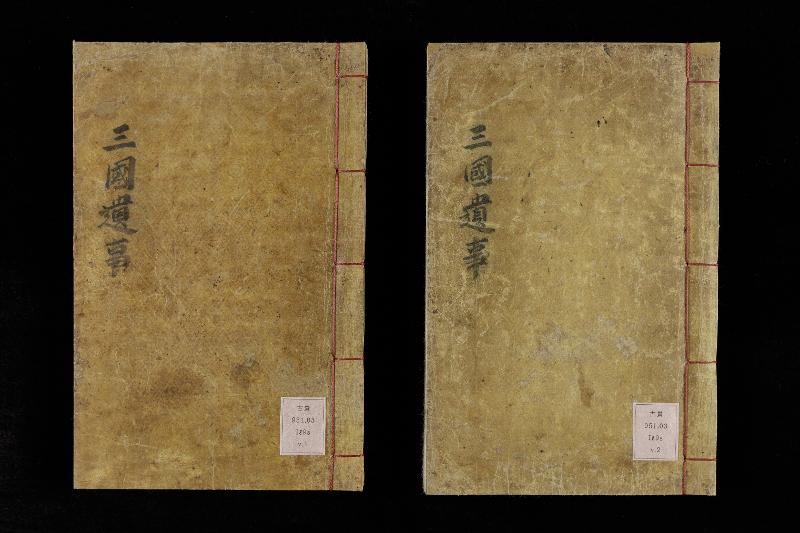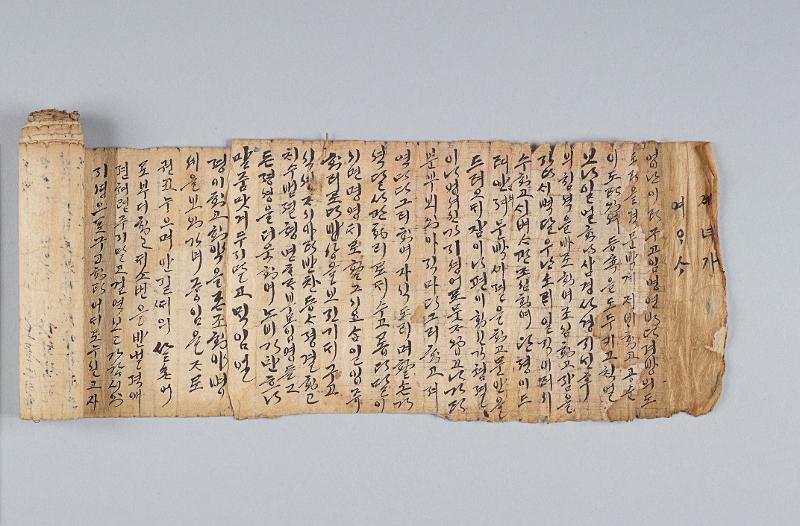
Three Korean historical records including "Samguk Yusa" (Memorabilia of the Three Kingdoms) will be submitted for inclusion in UNESCO's Memory of the World Register. The photo shows "Samguk Yusa," a collection of folktales and historical accounts written in 1281 by the Buddhist monk Il Yeon (1206-89) during the Goryeo Dynasty (918-1392).
By Yoon Sojung
Photos = Cultural Heritage Administration
The Cultural Heritage Administration (CHA) on April 5 said three historical records including "Samguk Yusa" (Memorabilia of the Three Kingdoms) have been selected as candidates for the UNESCO Memory of the World Register for Asia and the Pacific.
The other two candidates are "Naebang Gasa" (Song of the Inner Chambers) and the archives of a 2007 massive oil leak in waters off the coast of Taean-gun County, Chungcheongnam-do Province, and the cleanup process. The Korean National Committee for UNESCO Memory of the World chose the three finalists among five recommended by an open public contest that ran this year from Jan. 10 to Feb. 18.
The UNESCO register is run by the Memory of the World Regional Committee for Asia and the Pacific, according to the UNESCO Memory of the World program. Korea has three items on the register: signboards hung on royal palace buildings of the Joseon Dynasty, plaques hanging behind the roof or on the main gate and Maninso (Ten Thousand People's Petitions), a collection of petitions filed by 10,000 people in the Joseon era.
"Samguk Yusa" was written by the Buddhist monk Il Yeon (1206-89) in 1281, or the seventh year of the reign of King Chungnyeol of the Goryeo Dynasty. This comprehensive record covers mythology, history, religion, life and literature in ancient times on the Korean Peninsula. CHA called the book a record confirming the formation of a self-centered view (by Koreans) of East Asian history.
"Naebang Gasa" is a collection of literary works mainly by women between the 18th and 20th centuries in the Joseon era. This book is considered a record of women's social awareness at the time and a document displaying the process in which Hangeul became the official script in society.
The third candidate is the 200,000-plus documents on a massive oil leak that occurred on Dec. 7, 2007, off the coast of in Taean-gun County, Chungcheongnam-do Province, and the ensuing cleanup process. CHA praised the records for documenting a case study in which the public and private sectors jointly overcame a large-scale environmental disaster.
The applications of the three candidates will be submitted by June 15 to the register's committee for Asia and the Pacific, and the final decision will come at year's end.

"Naebang Gasa" (Song of the Inner Chambers) is a collection of literary works mainly by women between the 18th and 20th centuries during the Joseon Dynasty. It presents women's notion of Korea at the time and the process in which Hangeul became the official script of society.
